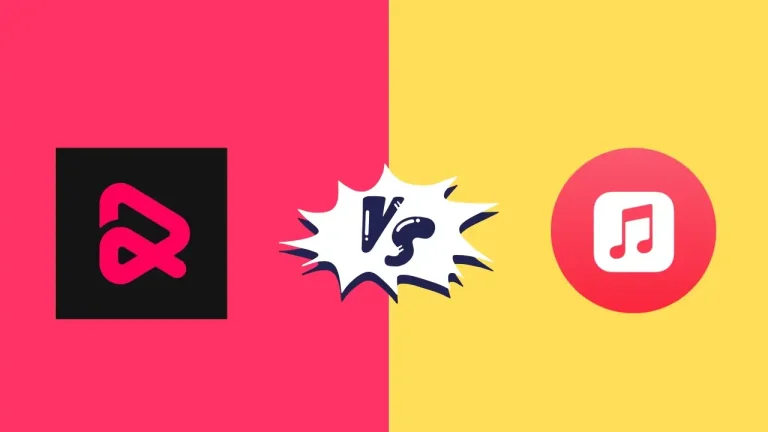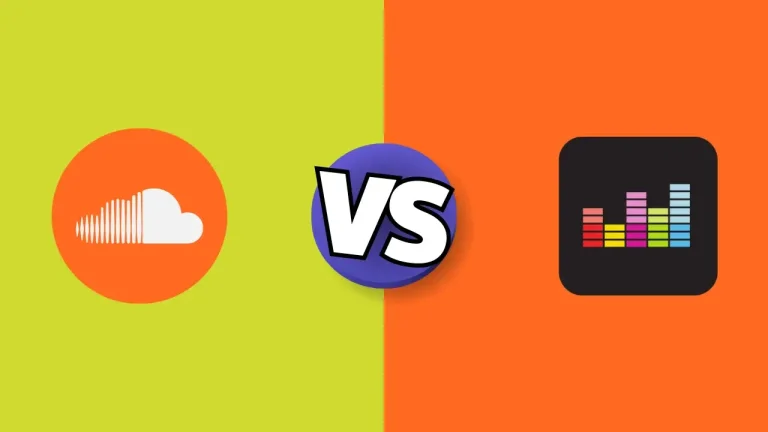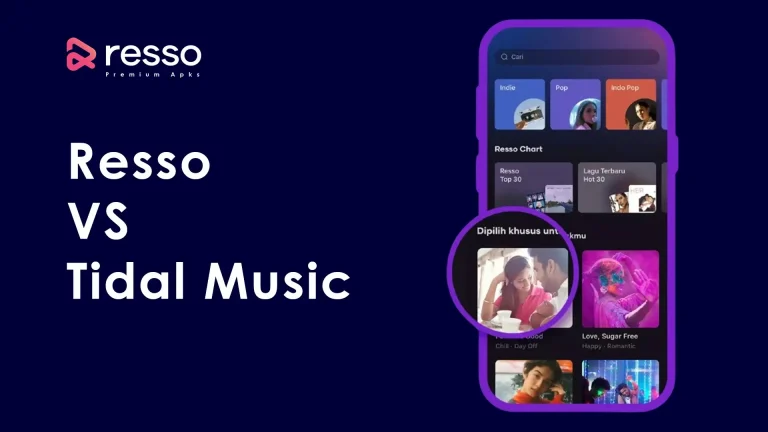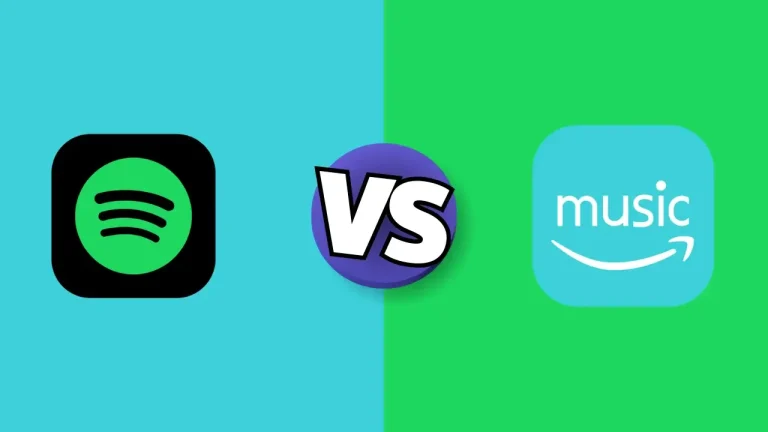SoundCloud vs Spotify is one of the most frequently debated topics among music lovers, artists, and streaming enthusiasts. Both platforms have revolutionized the way we consume music, but they cater to slightly different audiences and purposes. In this detailed guide, we will explore their features, content, pricing, and much more, to help you decide which platform is the perfect fit for your musical needs.
SoundCloud vs Spotify: Overview
The SoundCloud vs Spotify debate begins with understanding their origins and target audiences. SoundCloud, founded in 2007, is a platform primarily for independent artists and emerging musicians. It is a haven for those looking for unique, experimental, or underground music. SoundCloud provides a community-driven approach, where fans and creators interact directly, fostering a collaborative environment.
Spotify, on the other hand, was founded in 2006 and focuses on mainstream music listeners and podcast enthusiasts. It offers a vast catalog of licensed music from major record labels and is known for its curated playlists and algorithm-driven recommendations. While SoundCloud empowers creators with tools for uploading and sharing music, Spotify prioritizes providing polished content and user-friendly interfaces.
SoundCloud
- Founded: 2007
- Target Audience: Independent artists, emerging musicians, and listeners seeking unique, underground, or experimental music.
- Features:
- Open platform for uploading music.
- A mix of amateur and professional tracks.
- Focus on community and user engagement.
Spotify
- Founded: 2006
- Target Audience: Mainstream music listeners and podcast enthusiasts.
- Features:
- Licensed content from major record labels.
- Curated playlists and algorithm-driven recommendations.
Extensive library of podcasts.
Content Library: SoundCloud vs Spotify
When it comes to the content library, SoundCloud vs Spotify showcases a clear divide in the type of music available. SoundCloud boasts an extensive collection of over 300 million tracks, most of which come from independent artists. This includes remixes, mashups, DJ sets, and original content that cannot be found on any other platform. SoundCloud’s open platform allows anyone to upload music, resulting in a diverse and eclectic mix of audio content.
Spotify’s library, though smaller in comparison at over 100 million tracks, focuses on licensed music from mainstream artists. The platform partners with major record labels to deliver chart-topping albums and singles. Spotify also hosts a significant library of podcasts, making it a one-stop destination for audio entertainment. While it lacks the raw, unpolished gems often found on SoundCloud, Spotify’s library is a treasure trove for fans of popular music and professionally produced content.
SoundCloud
- Hosts over 300 million tracks.
- Content includes:
- Independent and unsigned artists.
- Remixes, mashups, and DJ sets.
- Limited mainstream music compared to Spotify.
Spotify
- Hosts over 100 million tracks.
- Content includes:
- Mainstream and chart-topping music.
- Licensed albums and singles from major labels.
- Extensive podcast library.
Pricing and Plans: SoundCloud vs Spotify
The pricing structure in the SoundCloud vs Spotify comparison highlights their different approaches to monetization. SoundCloud offers a free plan that provides ad-supported streaming and access to most tracks. For users seeking an ad-free experience and offline listening, SoundCloud Go is available at $4.99 per month. SoundCloud Go+, priced at $9.99 per month, grants access to the full track catalog and higher audio quality. Additionally, SoundCloud Pro Unlimited, at $12 per month, is tailored for artists, offering unlimited uploads and advanced analytics.
Spotify’s pricing starts with its free tier, which includes ad-supported streaming and shuffle play on mobile devices. The Premium plan, priced at $9.99 per month, eliminates ads, allows offline downloads, and provides higher audio quality. Spotify also offers a Family Plan for $15.99 per month, supporting up to six accounts, and a Student Plan for $4.99 per month, which includes Hulu and SHOWTIME in select regions. Spotify’s diverse plans cater to a broader audience, from individual listeners to families and students.
SoundCloud
- Free Plan: Ad-supported streaming; access to most tracks.
- SoundCloud Go: $4.99/month; ad-free listening and offline access.
- SoundCloud Go+: $9.99/month; includes full track catalog and high-quality audio.
- SoundCloud Pro Unlimited: $12/month; designed for artists to upload unlimited tracks and access advanced analytics.
Spotify
- Free Plan: Ad-supported streaming; shuffle play on mobile.
- Spotify Premium: $9.99/month; ad-free listening, offline access, and higher audio quality.
- Family Plan: $15.99/month; includes up to 6 accounts.
- Student Plan: $4.99/month; includes Hulu and SHOWTIME in select regions.
Audio Quality: SoundCloud vs Spotify
Audio quality is a critical factor in the SoundCloud vs Spotify debate. SoundCloud’s free tier streams music at 128 kbps, which is sufficient for casual listening but may not satisfy audiophiles. SoundCloud Go+ enhances the experience with high-quality audio streaming at 256 kbps. While SoundCloud focuses on accessibility and user-generated content, its audio quality is not its strongest suit.
Spotify’s free tier streams at 160 kbps, which is slightly better than SoundCloud’s free option. For Premium users, Spotify offers audio quality of up to 320 kbps, delivering a more immersive listening experience. Spotify is also rolling out a HiFi tier, promising lossless audio quality, which will elevate its appeal to audiophiles and music enthusiasts who prioritize sound fidelity.
SoundCloud
- Free tier streams at 128 kbps.
- SoundCloud Go+ offers high-quality audio at 256 kbps.
Spotify
- Free tier streams at 160 kbps.
- Premium tier streams at up to 320 kbps.
- HiFi tier (upcoming): Lossless audio quality.
User Experience: SoundCloud vs Spotify
The user experience is another area where SoundCloud vs Spotify diverges significantly. SoundCloud is designed with a community-driven approach, allowing users to like, repost, and comment on tracks. The platform encourages engagement between artists and fans, creating a vibrant and interactive environment. The interface is straightforward, making it easy for creators to upload music and for listeners to discover new tracks.
Spotify, by contrast, prioritizes a sleek and intuitive interface. Its personalized playlists, such as “Discover Weekly” and “Release Radar,” leverage sophisticated algorithms to provide tailored recommendations. Spotify’s search functionality is robust, and the platform integrates seamlessly across devices, ensuring a smooth and enjoyable listening experience. While it lacks the community interaction of SoundCloud, Spotify’s focus on curated content and ease of use appeals to mainstream listeners.
SoundCloud
- Focuses on user engagement with likes, reposts, and comments on tracks.
- Simple interface for uploading and discovering music.
- Strong community feel for artists and fans.
Spotify
- Sleek, intuitive interface with personalized playlists such as “Discover Weekly.”
- Robust search and recommendation algorithms.
Seamless integration across devices.
Tools for Artists: SoundCloud vs Spotify
For artists, the SoundCloud vs Spotify comparison highlights significant differences in how each platform supports creators. SoundCloud’s open platform allows anyone to upload music without the need for a record label or distributor. Artists can access analytics, promote their tracks, and monetize their content through fan-powered royalties. SoundCloud Pro Unlimited offers additional tools, such as unlimited uploads and audience insights, making it a preferred choice for independent musicians.
Spotify requires artists to distribute their music through third-party services, such as DistroKid or CD Baby, before it appears on the platform. While this adds an extra step for creators, Spotify for Artists provides valuable tools, including analytics and promotional options. Artists can pitch their tracks for playlist consideration and track their performance metrics. However, Spotify’s emphasis on polished, professional content may limit opportunities for emerging or experimental artists.
SoundCloud
- Open platform for uploading music without the need for a record label.
- Offers analytics and promotional tools for artists.
- Monetization options through fan-powered royalties.
Spotify
- Requires music distribution through third-party services for uploads.
- Spotify for Artists dashboard provides analytics and promotional tools.
Monetization through streams and playlists.
Community and Engagement: SoundCloud vs Spotify
Community engagement is a defining feature in the SoundCloud vs Spotify debate. SoundCloud excels in fostering a sense of community, allowing users to comment on specific timestamps within tracks. This feature encourages direct interaction between artists and fans, creating a collaborative and supportive ecosystem. SoundCloud’s social media-like environment is ideal for discovering and sharing new music.
Spotify, on the other hand, offers minimal community features. While users can follow artists and share playlists, the platform is primarily designed for passive listening. Spotify’s focus on algorithmic discovery and curated content caters to users who prefer a more hands-off approach to music exploration. Although it lacks the interactivity of SoundCloud, Spotify’s recommendations ensure that listeners are consistently exposed to new and relevant content.
SoundCloud
- Interactive community with comments on specific track timestamps.
- Encourages artist-fan interaction.
Spotify
- Minimal community features.
- Focuses more on passive listening and algorithmic discovery.
Availability: SoundCloud vs Spotify
In terms of availability, the SoundCloud vs Spotify comparison reveals that both platforms are widely accessible. SoundCloud is available in over 190 countries, with most of its content accessible globally. However, certain tracks may be subject to regional restrictions, depending on licensing agreements.
Spotify is available in over 180 countries and offers extensive access to mainstream music. Its global reach and partnerships with major record labels ensure that users can enjoy a consistent experience regardless of location. While both platforms are widely accessible, Spotify’s emphasis on licensed content gives it a slight edge in terms of availability and reliability.
SoundCloud
- Available in 190+ countries.
- Limited regional restrictions for certain tracks.
Spotify
- Available in over 180 countries.
- Extensive availability of mainstream music globally.
Strengths and Weaknesses: SoundCloud vs Spotify
The SoundCloud vs Spotify debate would be incomplete without examining their strengths and weaknesses. SoundCloud’s greatest strength lies in its support for independent and underground music. It provides a platform for emerging artists to share their work and connect with fans. The community-driven nature of SoundCloud fosters collaboration and discovery. However, its audio quality and limited mainstream content may deter some listeners.
Spotify’s strengths include its vast library of mainstream music, exceptional algorithms for personalized recommendations, and high-quality audio for Premium users. The platform’s polished interface and seamless integration across devices make it a favorite among casual listeners and audiophiles alike. However, its limited tools for independent artists and commercialized approach may not appeal to everyone.
SoundCloud
Strengths:
- Ideal for discovering independent and underground music.
- User-friendly for artists.
- Community-focused platform.
Weaknesses:
- Lower audio quality for free users.
- Less mainstream content.
Spotify
Strengths:
- Massive library of mainstream music and podcasts.
- Exceptional algorithms for personalized recommendations.
- High-quality audio for Premium users.
Weaknesses:
- Limited tools for independent artists.
- Heavily commercialized.
Conclusion: SoundCloud vs Spotify – Which Is Right for You?
Deciding between SoundCloud vs Spotify ultimately depends on your preferences and priorities. If you are an independent artist seeking a platform to share and promote your music, or a listener interested in discovering underground and experimental tracks, SoundCloud is the ideal choice. Its community-driven approach and diverse content library make it a unique and valuable platform.
On the other hand, if you are a mainstream music lover or podcast enthusiast looking for a polished, user-friendly interface with curated recommendations, Spotify is the better option. Its extensive library of licensed content and superior audio quality cater to a wide audience.
Both platforms have their merits, and understanding the differences outlined in this guide will help you make the most of your streaming experience. Whether you choose SoundCloud or Spotify, each offers a unique way to explore and enjoy the world of music.
Key Takeaways
| Point | SoundCloud | Spotify |
| Audience | Ideal for independent artists and fans of underground or experimental music. | Caters to mainstream music listeners and podcast enthusiasts. |
| Free Plan | Offers ad-supported streaming with unique community interaction. | Includes ads but provides curated playlists and better audio quality. |
| Paid Plans | SoundCloud Go+ offers ad-free listening, offline access, and enhanced audio quality. | Spotify Premium offers ad-free listening, offline access, and enhanced audio quality. |
| Community | Excels in community engagement with comments and reposts. | Focuses on personalized recommendations with minimal community interaction. |
| Artist Support | Provides direct upload options for artists. | Requires third-party distribution services for music uploads. |
| Monetization | Supports fan-powered royalties for artists. | Monetization is achieved through streams and playlist placements. |
| Global Availability | Widely available globally with some regional restrictions. | Available in over 180 countries with extensive mainstream music availability. |
| Strengths | Community-driven discovery and diverse content library. | Polished mainstream content and superior recommendation algorithms. |
| Audio Quality | Free tier streams at 128 kbps; Go+ offers 256 kbps. | Free tier streams at 160 kbps; Premium offers up to 320 kbps with HiFi (upcoming). |
| Best For | Those who prefer community-driven discovery and underground music. | Listeners who enjoy curated, mainstream content and polished interfaces. |
Resso vs Spotify, A Comprehensive Guide 2024
Resso vs Soundcloud: Which Music Streaming Service is Better 2024?







